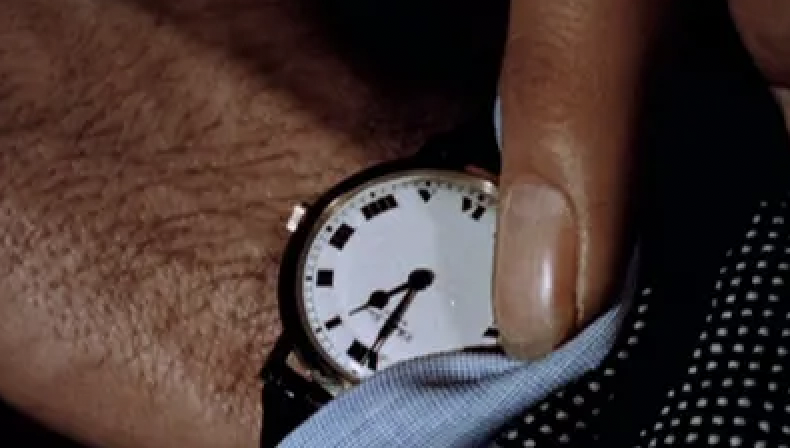Operation Inspiration
They say even a broken clock is right twice a day. That may be true for an analog clock which hasn’t been wound in a while, or maybe has a dead battery so the hands don’t move, but not for a digital clock. Not even for an analog clock that is moving, just not at the right speed. Since one of those keeps moving, it can go along its merry way, being wrong all the time.
I happen not to be a fan of the saying, which tries to convey that even a person who is usually wrong can be right once in a while. I don’t like it because, like the broken clock that happens to be right at the time which matches its unmoving hands, you can never really tell when that time is, so you can’t rely on it at all.
Well, one day, they installed a new clock in our shul. We already had three atomic clocks there, but this was a high-tech hard-wired monitor with the time in big bold block lettering. Well, numbering, but I’m not sure that’s a thing…
This clock is intended to help you pinpoint the precise moment of sunrise so you can begin Shemona Esrai at that optimal time. I wonder if back in ancient times they had sundials with teeny-tiny demarcations to help identify it, or if maybe there was a mark on the wall inside that when the sun hit just so you would begin praying. Either way, this clock was suddenly adorning the wall in front of my seat in the shul.
One morning, when they were tinkering around with it, the fellow turned it on and walked out. I kept looking at the clock and feeling rather unsettled. You see, the time was wrong. And I don’t mean like it wasn’t taking into account our time zone or Daylight Savings Time and it was an hour off. It was like twenty-three minutes off. I kept looking from that clock, proclaiming its incorrect time in big, bold, digits, to the humble atomic clock I’d purchased for the shul maybe twenty years ago, which was displaying the correct time.
When the fellow who was fiddling with the clock came back, I pointed it out to him and he modified it. Problem solved – sort of. You see, soon enough, the time went out. In its place was a red message alerting whoever handles these sorts of things that there was no internet connection. Yup, it needs to be connected to something to be able to know the time.
A typical clock is set and then moves at a specified rate. That’s how it keeps time, but then it might need to be adjusted every so often. The atomic clocks get their signal usually around midnight, which gets them through the day, though sometimes it isn’t strong enough and you have to move it to the window facing the southern sky for it to catch the signal and recalibrate itself. This new clock needs almost constant connection to the internet in order to function. It may work for a couple of hours without it, but when the unit realizes the connection is gone, it cries out for attention; to be reconnected. I think by this time, some of you may have guessed where I’m going with this.
Clocks serve an important purpose in the world. They let people know when they’re supposed to be somewhere, or doing something. As the Chofetz Chaim said you can learn from a train, “In a minute, you can miss everything.” Time is the most valuable commodity in the world because it can’t be bought for any price. That’s why being correct is so important.
Did you ever hear the term, railroad time? In the 1880’s, as railroads sprawled across the United States, they ran on watches that were matched to master clocks, known to be accurate, and adjusted frequently. That’s how they avoided collisions and accidents. In the local cities and towns, however, people set the time based on when the sun hit a particular local landmark. That meant time was a very subjective thing and varied from place to place, and even within the same city if it was large enough. Eventually, the states all adopted railroad time, and time zones were established. No longer on solar time, people could be better in sync with each other.
The Jewish People serve a very similar function to clocks. We are supposed to set the tone of proper behavior not only for ourselves, but for all the nations of the world. We are the example Hashem set of how human beings should conduct themselves. Like the newfangled clock in my shul, we need a constant connection and frequent adjustments. In order to be right even when we’re not getting the signal, we need to be imbued with the precision to know how to proceed through our days without going astray until we can reconnect.
It made me realize that we, too, ought to be very concerned about our connection: to Hashem, to the Torah, and to our Chachomim, master teachers who guide us and are known to be accurate. It’s so important because if we each run according to our own sundials and perspectives, we’re going to confuse ourselves and others, and possibly create some collisions.
Therefore, we must seek a solid connection all the time, since this need is bigger than we are – because everyone is watching us.
© 2023 – All Rights Reserved
Did you enjoy this column? Feedback is welcome and appreciated. E-mail info@JewishSpeechWriter.com to share your thoughts. You never know when you may be the lamp that enlightens someone else.
